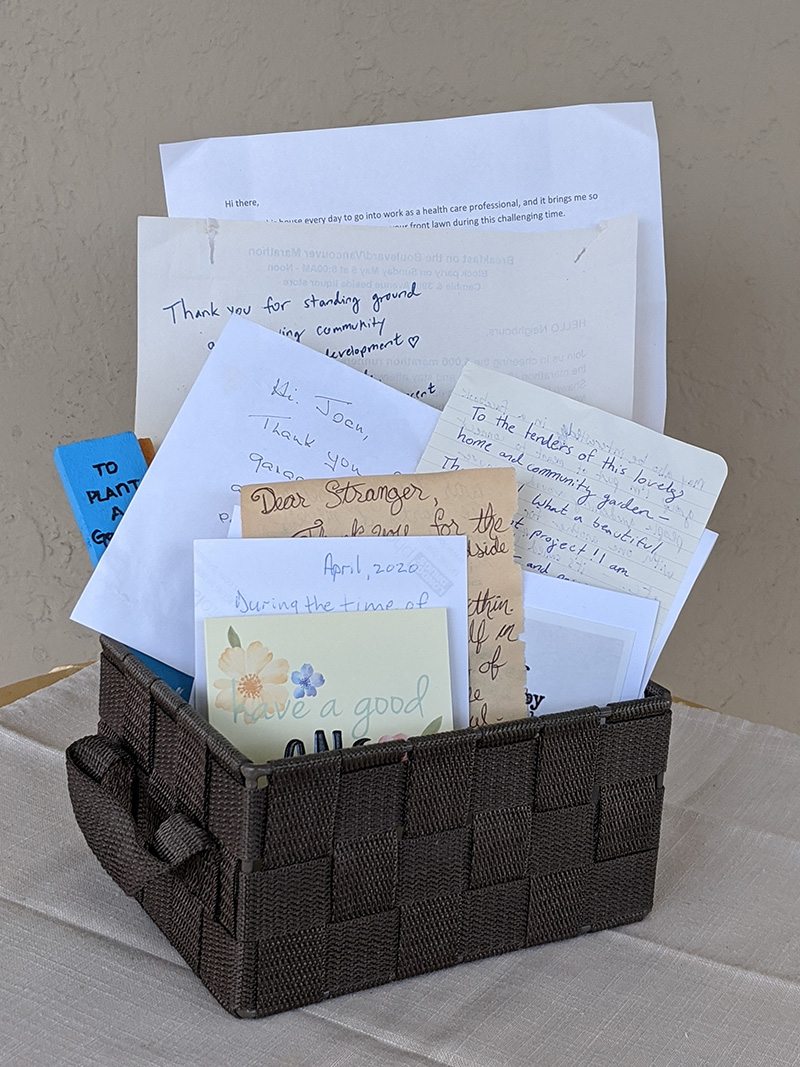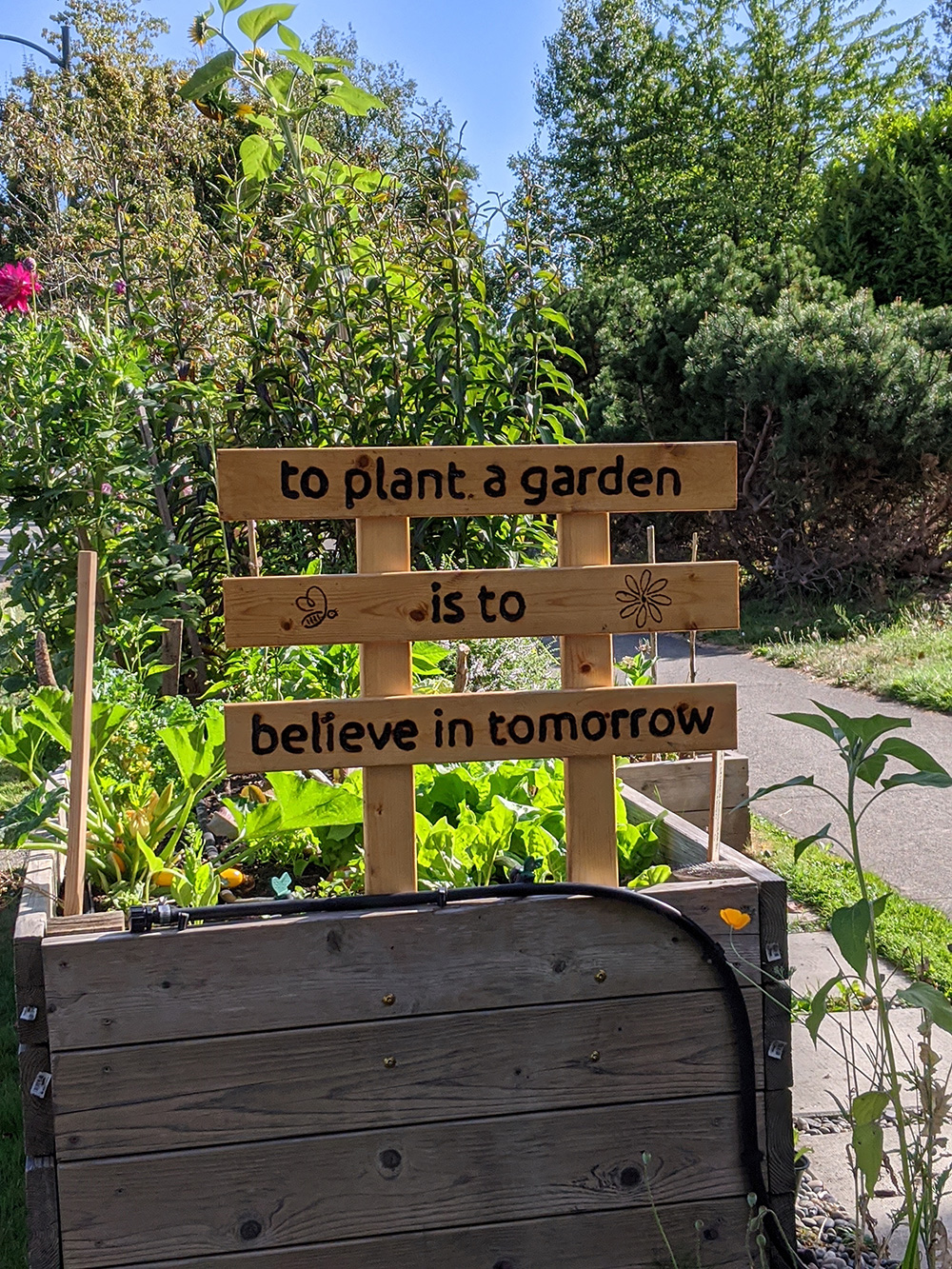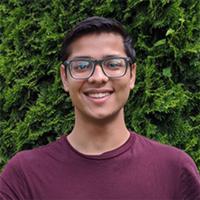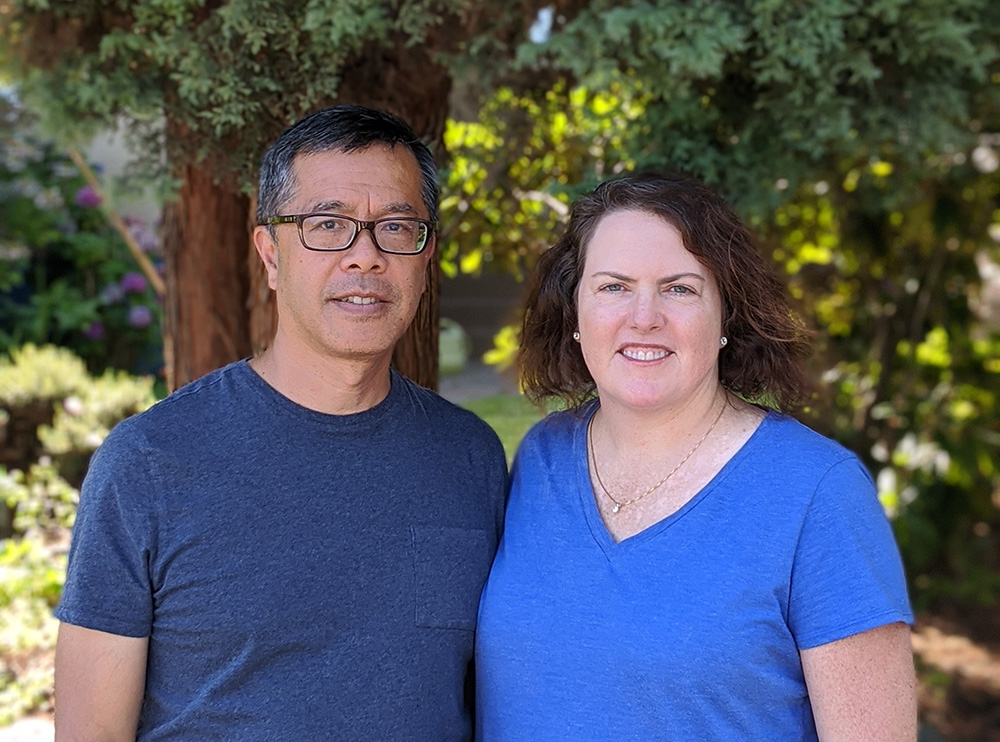Joan and Barry Jung had lived in their house on Cambie Street near Queen Elizabeth Park for almost a decade without knowing their neighbours. In 2012, they decided they’d had enough.
The Vancouver Foundation released a report that year about how many people were feeling socially isolated in the city. “We thought, that’s our story,” said Joan Jung.
So the next year the couple organized a Christmas party and invited everyone on their block. To their disappointment, only their next-door neighbours showed up. That’s when they realized that they needed to change strategy.
“We started spending more time in the front space, saying hello to people or at least making eye contact. It was awkward at first, but we cultivated that practice to acknowledge people,” Barry Jung said.
Still, the couple found their conversations rarely moved beyond exchanging pleasantries.
Then, one day, Barry Jung was at work building a garden space in his front yard and noticed that passersby were stopping to look. Next to the row of adjacent houses all set behind lawns and hedges, the Jungs’ vegetable and fruit garden must’ve looked almost naked.
“People started coming and asking, ‘What are you doing, aren’t you afraid that people will steal your vegetables?’” said Joan Jung. “And it invited this curiosity. We found that through the garden, people started having conversations.”
Hoping the garden might inspire people to grow their own food, Barry Jung installed a curbside library in the garden as a place to provide seeds, seedlings and books. Soon it became a locus for the neighbourhood to exchange various items.
People started leaving packages of seeds or little notes as thanks near the Jungs’ front door. So the couple took the next step, organizing barbecues and hosting nights with live music played by a neighbour.
While COVID-19 brought their gatherings to a temporary halt, people continue to enjoy their garden and its many features, they said.
“Over the years, we’ve realized that people do crave a sense of community, but they don’t realize it,” said Barry Jung. “We’re socialized to be independent and self-sustaining and not needing anyone else. But this pandemic has really exposed that we really do need each other.”
Even children and teens are fond of their flowers, Joan Jung said.
“Somebody once stopped by and said, ‘Are you the one that planted those sunflowers there? We stopped there every day on the way to school, yeah, to say hello to Mr. Sunflower.’ The appreciation is really affirming,” she said.
Early in the pandemic, to help bring some smiles in such tense times, she planted little succulents in small plastic pots and put them out for adoption.
“I gave them funny names, like Han Solo, Elton, Dr. Bonnie, Jane Austen and some Shakespearean names. I would watch them from inside as people would stop by, read and click selfies.”
She was touched to read a note from an anonymous health-care worker who was the proud new owner of Elton.

The couple keeps a basket full of the special notes they’ve received. A young woman experiencing homelessness left a note that Barry Jung often re-reads.
“This note from a girl read, ‘Thank you for your library. I found a friend within. I was at the end of my rope and it saved me.’ She was referring to a book she had read as a child, and it wasn’t even a book that we put out,” he said.
As their garden grew, so did their neighbourly bonds. And as the pandemic progressed, the generous Jungs increasingly found themselves the recipients of generosity. Neighbours gifted them handmade masks and veggies, and one even offered to install their winter tires.
This didn’t happen out of nowhere. The couple had spent a decade opening themselves up to community.
“Eight years ago, we would see people that we’d recognize but we wouldn’t say anything, or they would just mind their own business,” said Barry Jung. “But now people will stop, kind of double park their car in the lane, roll down their windows to chat for a while before they head home.”
The garden became Joan Jung’s anchor in the pandemic. “It was beneficial for my mental health, just to see things growing. I was telling myself: life is still normal, and things are still growing,” she said.
Barry Jung said pandemic life would have been very different without the garden. “I think it would’ve been very isolating. I don’t know what we’d be doing. Maybe Netflixing all the time.”

It hasn’t all been smooth. A sign that Barry Jung carved that read “To plant a garden is to believe in tomorrow” was stolen in the first two months. They reinstalled it, but it was vandalized a second time.
Still, the Jungs weren’t deterred.
“We often ask ourselves, ‘Do we want to live with the spirit of scarcity or a spirit of abundance?’” said Joan Jung. “If you live with scarcity, it’s like you hoard and you don’t want to share it. But if we live with abundance, we have more than enough to share with everyone.”
Her experience with the garden now has Joan Jung looking at a seed and seeing something much bigger than usual: hope for tomorrow.
“When you put the seed in the ground, you don’t see it. It’s just dirt. But because you believe and you keep watering it, you just keep going,” she said.
“So, when it’s dark times, you gotta have that hope that this isn’t forever, that this pandemic is not forever. We need to continue to stay the course and keep doing what we’re supposed to do. One day, we’ll have that harvest again. The beauty will come back, because it is still there. It’s just harder to see.” ![]()
















Tyee Commenting Guidelines
Comments that violate guidelines risk being deleted, and violations may result in a temporary or permanent user ban. Maintain the spirit of good conversation to stay in the discussion.
*Please note The Tyee is not a forum for spreading misinformation about COVID-19, denying its existence or minimizing its risk to public health.
Do:
Do not: